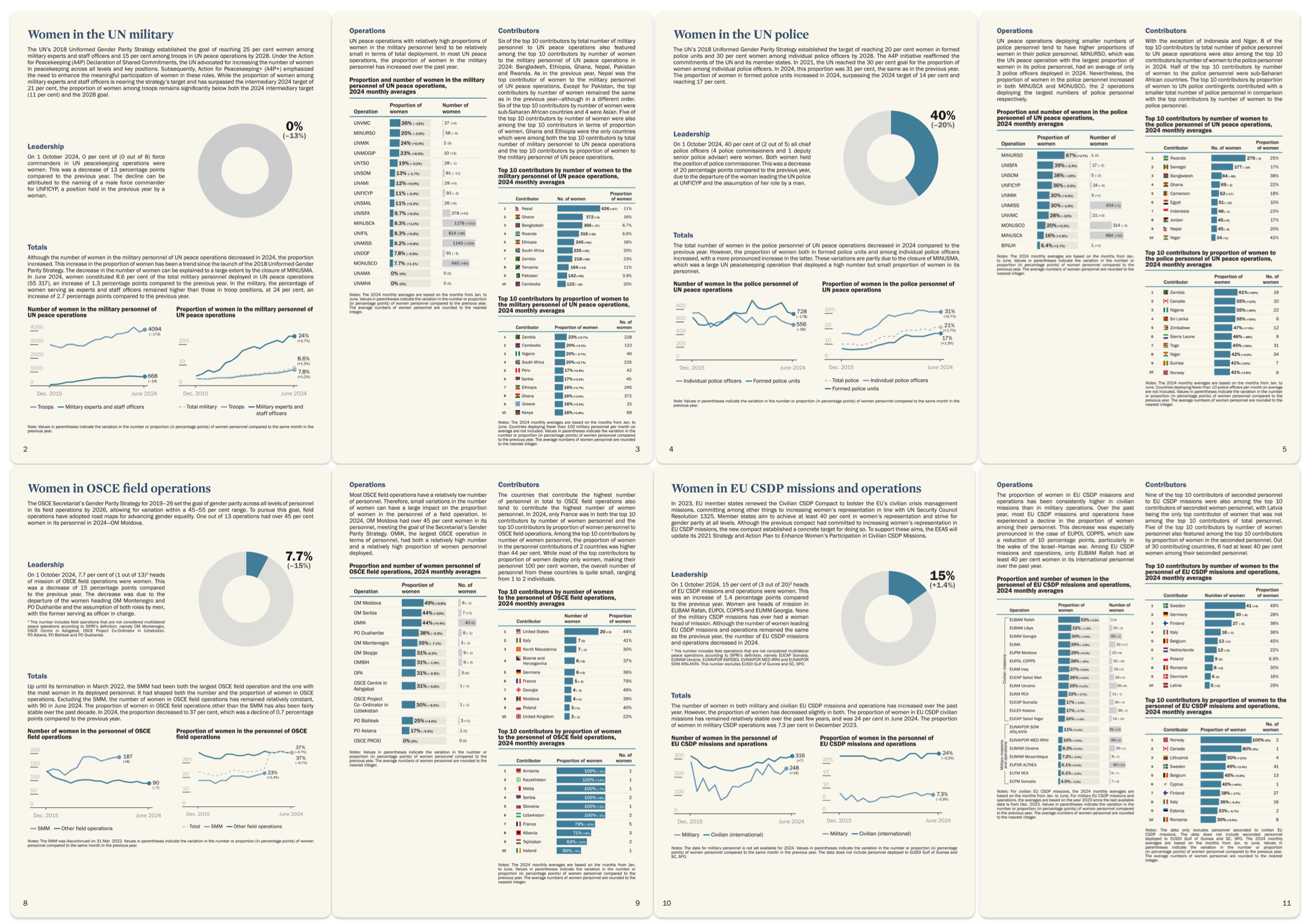
As the 24th anniversary of United Nations Security Council Resolution 1325 on women, peace and security (WPS) approaches, SIPRI is pleased to share its recent work on the WPS agenda.
New SIPRI data on women in peacekeeping operations
Yesterday the institute launched Women in Multilateral Peace Operations in 2024: What is the State of Play?, an annual overview of women’s representation in multilateral peace operations. This publication looks at UN peace operations (i.e. both UN peacekeeping operations and UN special political missions), European Union (EU) Common Security and Defence Policy missions and operations, and Organization for Security and Co-operation in Europe field operations. Authored by Dr Claudia Pfeifer Cruz, Researcher in the SIPRI Peace Operations and Conflict Management Programme, the statistics aim to inform and foster the debate on the future of the WPS agenda within the context of multilateral peace operations.

Revitalizing the WPS agenda
Earlier this month, SIPRI released a video interview with Gretchen Baldwin, Researcher in the SIPRI Peace Operations and Conflict Management Programme, on the challenges the WPS agenda is facing today. In particular, the discussion focuses on how the implementation of the agenda is often reduced to women’s representation in military and security structures, at the expense of protection, prevention, relief and recovery. See the video linked below or on SIPRI’s YouTube channel.
WPS and WMD
Two commentary pieces were also launched this month. Dr Wilfred Wan, Director of the SIPRI Weapons of Mass Destruction (WMD) Programme, wrote the essay ‘Synergies Between Women, Peace and Security and the Governance of WMD’. This piece posits that the WPS agenda focuses on gender equality and preventing conflict but largely ignores WMD. WMD use disproportionately impacts women, and women are often excluded from WMD discussions. Dr Wan maintains that by integrating these agendas, stakeholders can create a more comprehensive approach to peace and security that considers the specific needs of women and the devastating impact of WMD.
The future of WPS
The blog ‘Where Next for the Women, Peace and Security Agenda?’, by Gretchen Baldwin and Marta Bertea, evaluates the future of the WPS agenda. The authors argue that advancing the agenda requires strengthening existing resolutions and resisting securitization, with a focus on all four pillars: participation, protection, prevention, and relief and recovery.